- Home
- Paulo Coelho
The Zahir Page 5
The Zahir Read online
Page 5
Friends, acquaintances, publishers, people I sat next to at the many gala dinners I was obliged to attend, listened with some curiosity at first. Gradually, though, I noticed that they tended to change the subject; they had been interested in the subject at some point, but it was no longer part of their current curiosities: they were more interested in talking about the actress who had been murdered by a singer or about the adolescent girl who had written a book about her affairs with well-known politicians. One day, in Madrid, I noticed that the number of guests at events and suppers was beginning to fall off. Although it may have been good for my soul to unburden myself of my feelings, to blame or to bless Esther, I began to realize that I was becoming something even worse than a betrayed husband: I was becoming the kind of boring person no one wants to be around.
I decided, from then on, to suffer in silence, and the invitations once more flooded in through my mailbox.
But the Zahir, about which I initially used to think with either irritation or affection, continued to grow in my soul. I started looking for Esther in every woman I met. I would see her in every bar, every cinema, at bus stops. More than once I ordered a taxi driver to stop in the middle of the street or to follow someone, until I could persuade myself that the person was not the person I was looking for.
With the Zahir beginning to occupy my every thought, I needed an antidote, something that would not take me to the brink of despair.
There was only one possible solution: a girlfriend.
I encountered three or four women I felt drawn to, but then I met Marie, a thirty-five-year-old French actress. She was the only one who did not spout such nonsense as: “I like you as a man, not as the celebrity everyone wants to meet” or “I wish you weren’t quite so famous,” or worse still: “I’m not interested in money.” She was the only one who was genuinely pleased at my success, because she too was famous and knew that celebrity counts. Celebrity is an aphrodisiac. It was good for a woman’s ego to be with a man and know that he had chosen her even though he had had the pick of many others.
We were often seen together at parties and receptions; there was speculation about our relationship, but neither she nor I confirmed or denied anything, and the matter was left hanging, and all that remained for the magazines was to wait for the photo of the famous kiss—which never came, because both she and I considered such public exhibitionism vulgar. She got on with her filming and I with my work; when I could, I would travel to Milan, and when she could, she would meet me in Paris; we were close, but not dependent on each other.
Marie pretended not to know what was going on in my soul, and I pretended not to know what was going on in hers (an impossible love for a married neighbor, even though she could have had any man she wanted). We were friends, companions, we enjoyed the same things; I would even go so far as to say that there was between us a kind of love, but different from the love I felt for Esther or that Marie felt for her neighbor.
I started taking part in book signings again, I accepted invitations to give lectures, write articles, attend charity dinners, appear on television programs, help out with projects for up-and-coming young artists. I did everything except what I should have been doing, namely, writing a book.
This didn’t matter to me, however, for in my heart of hearts I believed that my career as a writer was over, because the woman who had made me begin was no longer there. I had lived my dream intensely while it lasted, I had got further than most people are lucky enough to get, I could spend the rest of my life having fun.
I thought this every morning. In the afternoon, I realized that the only thing I really liked doing was writing. By nightfall, there I was once more trying to persuade myself that I had fulfilled my dream and should try something new.
The following year was a Holy Year in Spain, the Año Santo Compostelano, which occurs whenever the day of Saint James of Compostela, July 25, falls on a Sunday. A special door to the cathedral in Santiago stands open for 365 days, and, according to tradition, anyone who goes through that door receives a series of special blessings.
There were various commemorative events throughout Spain, and since I was extremely grateful for the pilgrimage I had made, I decided to take part in at least one event: a talk, in January, in the Basque country. In order to get out of my routine—trying to write a book/going to a party/to the airport/visiting Marie in Milan/going out to supper/to a hotel/to the airport/surfing the Internet/going to the airport/to an interview/to another airport—I chose to drive the 1,400 kilometers there alone.
Everywhere—even those places I have never visited before—reminds me of my private Zahir. I think how Esther would love to see this, how much she would enjoy eating in this restaurant or walking by this river. I spend the night in Bayonne and, before I go to sleep, I turn on the television and learn that there are about five thousand trucks stuck on the frontier between France and Spain, due to a violent and entirely unexpected snowstorm.
I wake up thinking that I should simply drive back to Paris: I have an excellent excuse for canceling the engagement, and the organizers will understand perfectly—the traffic is in chaos, there is ice on the roads, both the French and Spanish governments are advising people not to leave home this weekend because the risk of accidents is so high. The situation is worse than it was last night: the morning paper reports that on one stretch of road alone seventeen thousand people are trapped; civil defense teams have been mobilized to provide them with food and temporary shelters, since many people have already run out of fuel and cannot use their car heaters.
The hotel staff tell me that if I really have to travel, if it’s a matter of life or death, there is a minor road I can take, which, while it will avoid the blockages, will add about two hours to my journey time, and no one can guarantee what state the road will be in. Instinctively, I decide to go ahead; something is forcing me on, out onto the icy asphalt and to the hours spent patiently waiting in bottlenecks.
Perhaps it is the name of the city: Vitória—Victory. Perhaps it is the feeling that I have grown too used to comfort and have lost my ability to improvise in crisis situations. Perhaps it is the enthusiasm of the people who are, at this moment, trying to restore a cathedral built many centuries ago and who, in order to draw attention to their efforts, have invited a few writers to give talks. Or perhaps it is the old saying of the conquistadors of the Americas: “It is not life that matters, but the journey.”
And so I keep on journeying. After many long, tense hours, I reach Vitória, where some even tenser people are waiting for me. They say that there hasn’t been a snowstorm like it for more than thirty years, they thank me for making the effort, and continue with the official program, which includes a visit to the Cathedral of Santa María.
A young woman with shining eyes starts telling me the story. To begin with there was the city wall. The wall remained, but one part of it was used to build a chapel. Many years passed, and the chapel became a church. Another century passed, and the church became a Gothic cathedral. The cathedral had had its moments of glory, there had been structural problems, for a time it had been abandoned, then restoration work had distorted the whole shape of the building, but each generation thought it had solved the problem and would rework the original plans. Thus, in the centuries that followed, they raised a wall here, took down a beam there, added a buttress over there, created or bricked up stained-glass windows.
And the cathedral withstood it all.
I walk through the skeleton of the cathedral, studying the restoration work currently being carried out: this time the architects guarantee that they have found the perfect solution. Everywhere there are metal supports, scaffolding, grand theories about what to do next, and some criticism about what was done in the past.
And suddenly, in the middle of the central nave, I realize something very important: the cathedral is me, it is all of us. We are all growing and changing shape, we notice certain weaknesses that need to be corrected, we don’t always choose the be
st solution, but we carry on regardless, trying to remain upright and decent, in order to do honor not to the walls or the doors or the windows, but to the empty space inside, the space where we worship and venerate what is dearest and most important to us.
Yes, we are all cathedrals, there is no doubt about it; but what lies in the empty space of my inner cathedral?
Esther, the Zahir.
She fills everything. She is the only reason I am alive. I look around, I prepare myself for the talk I am to give, and I understand why I braved the snow, the traffic jams, and the ice on the roads: in order to be reminded that every day I need to rebuild myself and to accept—for the first time in my entire existence—that I love another human being more than I love myself.
On the way back to Paris—in far more favorable weather conditions—I am in a kind of trance: I do not think, I merely concentrate on the traffic. When I get home, I ask the maid not to let anyone in, and ask her if she can sleep over for the next few nights and make me breakfast, lunch, and supper. I stamp on the small apparatus that connects me to the Internet, destroying it completely. I unplug the telephone. I put my cell phone in a box and send it to my publisher, saying that he should only give it back to me when I come around personally to pick it up.
For a week, I walk by the Seine each morning, and when I get back, I lock myself in my study. As if I were listening to the voice of an angel, I write a book, or, rather, a letter, a long letter to the woman of my dreams, to the woman I love and will always love. This book might one day reach her hands and even if it doesn’t, I am now a man at peace with his spirit. I no longer wrestle with my wounded pride, I no longer look for Esther on every corner, in every bar and cinema, at every supper. I no longer look for her in Marie or in the newspapers.
On the contrary, I am pleased that she exists; she has shown me that I am capable of a love of which I myself knew nothing, and this leaves me in a state of grace.
I accept the Zahir, and will let it lead me into a state of either holiness or madness.
A Time to Rend and a Time to Sew—the title is from a line in Ecclesiastes—was published at the end of April. By the second week of May, it was already number one on the bestseller lists.
The literary supplements, which have never been kind to me, redoubled their attacks. I cut out some of the key phrases and stuck them in a notebook along with reviews from previous years; they said basically the same thing, merely changing the title of the book:
“…once again, despite the troubled times we live in, the author offers us an escape from reality with a story about love…” (as if people could live without love).
“…short sentences, superficial style…” (as if long sentences equaled profundity).
“…the author has discovered the secret of success—marketing…” (as if I had been born in a country with a long literary tradition and had had millions to invest in my first book).
“…it will sell as well as all his other books, which just proves how unprepared human beings are to face up to the encircling tragedy…” (as if they knew what it meant to be prepared).
Some reviews, however, were different, adding that I was profiting from last year’s scandal in order to make even more money. As always, these negative reviews only served to sell more of my books: my faithful readers bought the book anyway, and those who had forgotten about the whole sorry business were reminded of it again and so also bought copies, because they wanted to hear my version of Esther’s disappearance (since the book was not about that, but was, rather, a hymn to love, they must have been sorely disappointed and would doubtless have decided that the critics were spot-on). The rights were immediately sold to all the countries where my books were usually published.
Marie, who read the typescript before I sent it to the publisher, showed herself to be the woman I had hoped she was: instead of being jealous, or saying that I shouldn’t bare my soul like that, she encouraged me to go ahead with it and was thrilled when it was a success. At the time, she was reading the teachings of a little-known mystic, whom she quoted in all our conversations.
When people praise us, we should always keep a close eye on how we behave.”
“The critics never praise me.”
“I mean your readers: you’ve received more letters than ever. You’ll end up believing that you’re better than you are, and allow yourself to slip into a false sense of security, which could be very dangerous.”
“Ever since my visit to the cathedral in Vitória, I do think I’m better than I thought I was, but that has nothing to do with readers’ letters. Absurd though it may seem, I discovered love.”
“Great. What I like about the book is the fact that, at no point, do you blame your ex-wife. And you don’t blame yourself either.”
“I’ve learned not to waste my time doing that.”
“Good. The universe takes care of correcting our mistakes.”
“Do you think Esther’s disappearance was some kind of ‘correction,’ then?”
“I don’t believe in the curative powers of suffering and tragedy; they happen because they’re part of life and shouldn’t be seen as a punishment. Generally speaking, the universe tells us when we’re wrong by taking away what is most important to us: our friends. And that, I think I’m right in saying, is what was happening with you.”
“I learned something recently: our true friends are those who are with us when the good things happen. They cheer us on and are pleased by our triumphs. False friends only appear at difficult times, with their sad, supportive faces, when, in fact, our suffering is serving to console them for their miserable lives. When things were bad last year, various people I had never even seen before turned up to ‘console’ me. I hate that.”
“I’ve had the same thing happen to me.”
“But I’m very grateful that you came into my life, Marie.”
“Don’t be too grateful too soon, our relationship isn’t strong enough. As a matter of fact, I’ve been thinking of moving to Paris or asking you to come and live in Milan: it wouldn’t make any difference to either of us in terms of work. You always work at home and I always work away. Would you like to change the subject now or shall we continue discussing it as a possibility?”
“I’d like to change the subject.”
“Let’s talk about something else then. It took a lot of courage to write that book. What surprises me, though, is that you don’t once mention the young man.”
“I’m not interested in him.”
“You must be. Every now and again you must ask yourself: Why did she choose him?”
“I never ask myself that.”
“You’re lying. I’d certainly like to know why my neighbor didn’t divorce his boring, smiling wife, always busy with the housework, the cooking, the children, and the bills. If I ask myself that, you must too.”
“Are you saying that I hate him because he stole my wife?”
“No, I want to hear you say that you forgive him.”
“I can’t do that.”
“It’s hard, I know, but you’ve no option. If you don’t do it, you’ll always be thinking of the pain he caused you and that pain will never pass. I’m not saying you’ve got to like him. I’m not saying you should seek him out. I’m not suggesting you should start thinking of him as an angel. What was his name now? Something Russian wasn’t it?”
“It doesn’t matter what his name was.”
“You see? You don’t even want to say his name. Are you superstitious?”
“Mikhail. There you are, that’s his name.”
“The energy of hatred won’t get you anywhere; but the energy of forgiveness, which reveals itself through love, will transform your life in a positive way.”
“Now you’re sounding like some Tibetan sage, spouting stuff that is all very nice in theory, but impossible in practice. Don’t forget, I’ve been hurt before.”
“Exactly, and you’re still carrying inside you the little boy, the school weakling, who
had to hide his tears from his parents. You still bear the marks of the skinny little boy who couldn’t get a girlfriend and who was never any good at sports. You still haven’t managed to heal the scars left by some of the injustices committed against you in your life. But what good does that do?”
“Who told you about that?”
“I just know. I can see it in your eyes, and it doesn’t do you any good. All it does is feed a constant desire to feel sorry for yourself, because you were the victim of people stronger than you. Or else it makes you go to the other extreme and disguise yourself as an avenger ready to strike out at the people who hurt you. Isn’t that a waste of time?”
“It’s just human.”
“Oh, it is, but it’s not intelligent or reasonable. Show some respect for your time on this earth, and know that God has always forgiven you and always will.”
Looking around at the crowd gathered for my book signing at a megastore on the Champs-Elysées, I thought: How many of these people will have had the same experience I had with my wife?
Very few. Perhaps one or two. Even so, most of them would identify with what was in my new book.
Writing is one of the most solitary activities in the world. Once every two years, I sit down in front of the computer, gaze out on the unknown sea of my soul, and see a few islands—ideas that have developed and which are ripe to be explored. Then I climb into my boat—called The Word—and set out for the nearest island. On the way, I meet strong currents, winds, and storms, but I keep rowing, exhausted, knowing that I have drifted away from my chosen course and that the island I was trying to reach is no longer on my horizon.
I can’t turn back, though, I have to continue somehow or else I’ll be lost in the middle of the ocean; at that point, a series of terrifying scenarios flash through my mind, such as spending the rest of my life talking about past successes, or bitterly criticizing new writers, simply because I no longer have the courage to publish new books. Wasn’t my dream to be a writer? Then I must continue creating sentences, paragraphs, chapters, and go on writing until I die, and not allow myself to get caught in such traps as success or failure. Otherwise, what meaning does my life have? Being able to buy an old mill in the south of France and tending my garden? Giving lectures instead, because it’s easier to talk than to write? Withdrawing from the world in a calculated, mysterious way, in order to create a legend that will deprive me of many pleasures?

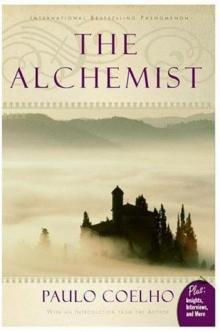 The Alchemist
The Alchemist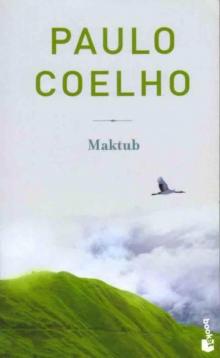 Maktub
Maktub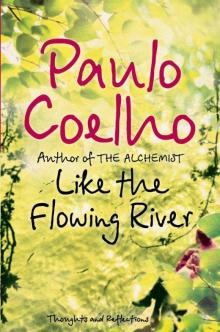 Like the Flowing River
Like the Flowing River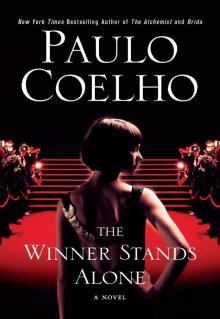 The Winner Stands Alone
The Winner Stands Alone The Spy
The Spy By the River Piedra I Sat Down and Wept: A Novel of Forgiveness
By the River Piedra I Sat Down and Wept: A Novel of Forgiveness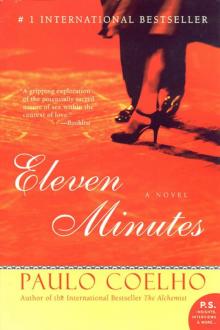 Eleven Minutes
Eleven Minutes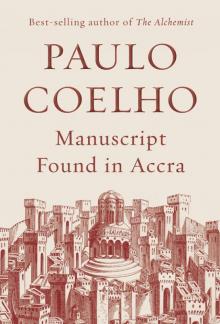 Manuscript Found in Accra
Manuscript Found in Accra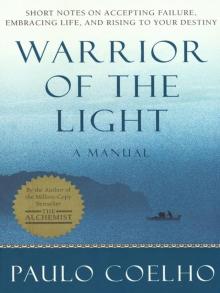 Warrior of the Light
Warrior of the Light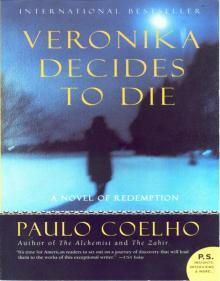 Veronika Decides to Die: A Novel of Redemption
Veronika Decides to Die: A Novel of Redemption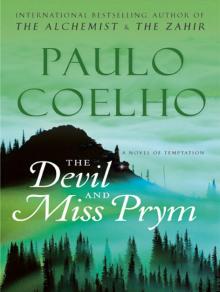 The Devil and Miss Prym: A Novel of Temptation
The Devil and Miss Prym: A Novel of Temptation The Valkyries: An Encounter With Angels
The Valkyries: An Encounter With Angels Brida: A Novel
Brida: A Novel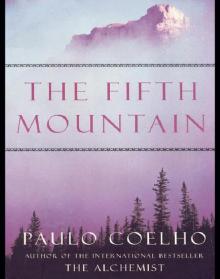 Fifth Mountain: A Novel
Fifth Mountain: A Novel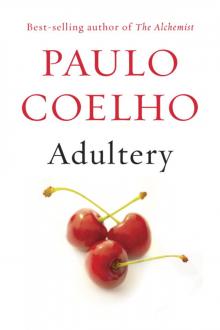 Adultery
Adultery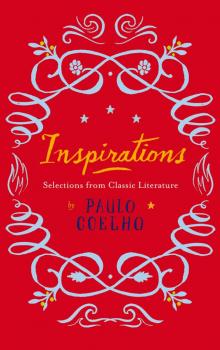 Inspirations
Inspirations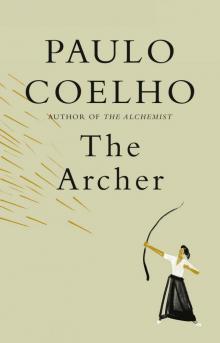 The Archer
The Archer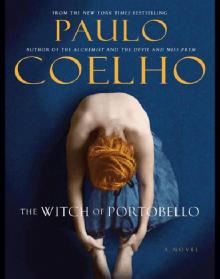 The Witch of Portobello
The Witch of Portobello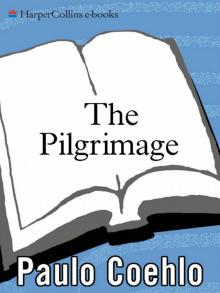 The Pilgrimage
The Pilgrimage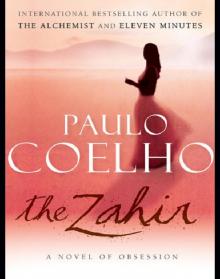 The Zahir
The Zahir Brida
Brida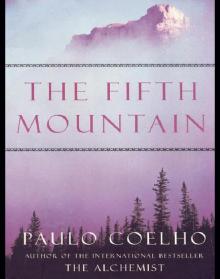 The Fifth Mountain
The Fifth Mountain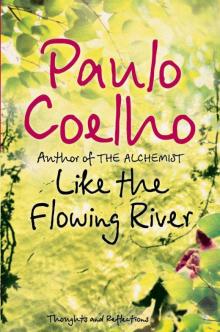 Like the Flowing River: Thoughts and Reflections
Like the Flowing River: Thoughts and Reflections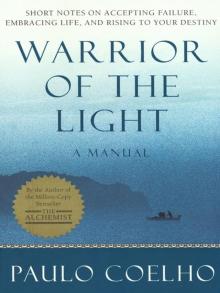 Manual of the Warrior of Light
Manual of the Warrior of Light By The River Piedra I Sat Down & Wept
By The River Piedra I Sat Down & Wept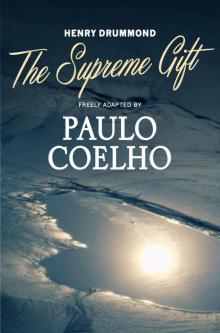 The Supreme Gift
The Supreme Gift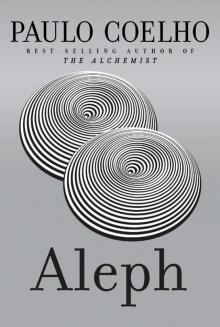 Aleph
Aleph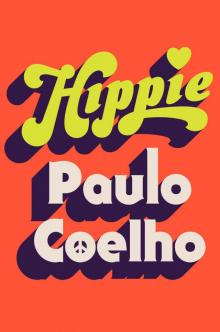 Hippie
Hippie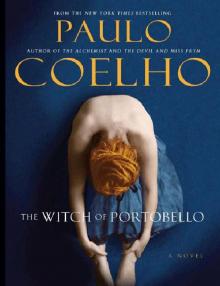 Witch of Portobello
Witch of Portobello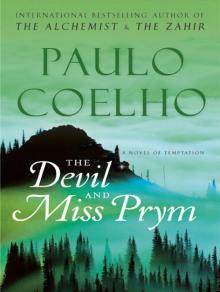 The Devil and Miss Prym
The Devil and Miss Prym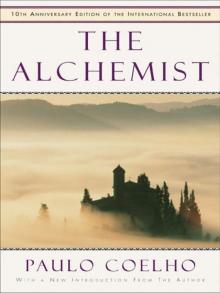 The Alchemist - 10th Anniversary Edition
The Alchemist - 10th Anniversary Edition The Valkyries
The Valkyries